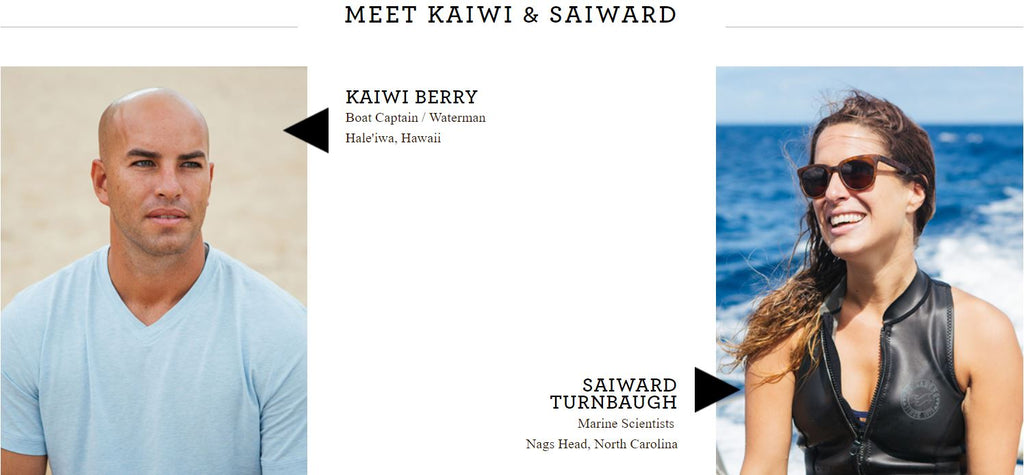In the deep blue waters, far off Haleiwa Harbor on the North Coast of O'ahu, there’s a special spot on a sandbar ledge that teems with sharks of all variety — galapagos, sandbar, hammerheads & the occasional tiger. This is where Kaiwi Berry scattered his grandfather’s ashes fifteen years ago, the place the old man showed him when he was just a boy. “I grew up as an infant on the dashboard of his boat,” said Kaiwi. “It’s just something you’re born into here. I remember them congregating around us, so as far as you could see on the surface was sharks.”
--image_block_a--
Kaiwi works as a North Shore lifeguard, though these days he spends most of his time leading visitors out on his boat for deep pelagic dives and shark tours — to his grandfather’s old haunts. When Kaiwi catches a glimpse of a tiger now he feels his grandfather’s presence, the unmistakable tug of the ‘aumakua — the spiritual protector of a family. Recently Saiward Turnbaugh joined him to get a glimpse into his world, the special relationship he’s developed with these misunderstood animals, and the aloha he shares with anyone aboard his boat.
--video_block--
Saiward maintains the aquarium on Roanoke Island in North Carolina and like Kaiwi, spends every day with sharks. Kaiwi and Saiward may not share the same sea, but they have a fundamental kinship — they’ve both devoted their lives to inspiring others to care for the ocean’s most feared fish. “They’re the keystone species of the oceans from which everything relies on,” said Saiward. “Without sharks, the oceans would actually crash.”
Kaiwi’s instinctive knowledge of shark behavior can’t be taught in books. “It’s nothing you can learn from sitting in a lecture,” said Saiward. “He watches them, studies them, and knows their actions and how they’re responding to people. He definitely fits the description of a scientist.” Human apathy is the biggest threat to shark conservation and Kaiwi works to educate visitors on the importance of these apex predators. His aloha spirit in fact makes our oceans a healthier ecosystem — visitors take this aloha home with them anywhere. “We’re training people to better understand the island, the water, the conditions, and the inhabitants of the ocean,” said Kaiwi. “People come to Hawaii and there’s not a place for them to go and learn these things. It’s up to us, the people who know it, to pass it on.”
--image_block_b--















